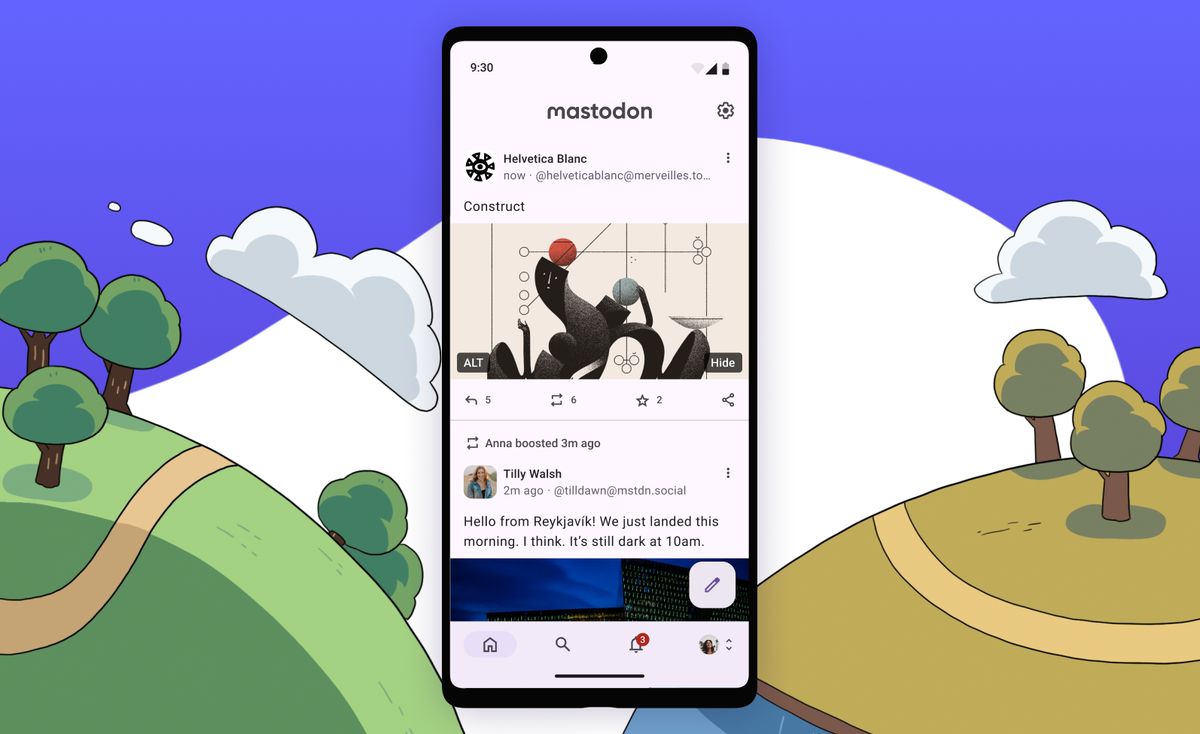In the wake of Twitter's controversial move to limit tweet visibility and introduce breaking changes to TweetDeck, Mastodon, an open-source Twitter alternative, is making headlines with a significant refresh of its Android app. Released over the weekend, this update manifests a full-scale adaptation of Material You — Google’s design language for Android — and an overhaul of several features including tab bars, settings, and the compose screen.
Mastodon's Founder and CEO, Eugen Rochko, heralded the update on the Mastodon blog. The social networking platform, encompassing mobile apps, web version, and third-party clients, now boasts an active user base of 1.4 million monthly active users, as per the company’s internal data. Notably, this represents a 19% uptick, albeit lower than the platform's peak user engagement following Elon Musk’s Twitter takeover, which had sparked 2.5 million monthly users.
Rochko recently shared that Mastodon's active users surged by 294,000 over the weekend, with posting activity nearly tripling, potentially triggered by Twitter's ongoing issues.
Mastodon's new Android app brings a cornucopia of customization options in the revamped settings screen. Users can modify the default posting language, add alternative text to media uploads, and even control visibility of the "boost" and "favorite" counters — Mastodon's equivalent of Twitter's retweet feature. Android users can now also access server-specific information and its associated rules — a crucial aspect of Mastodon's decentralized social networking infrastructure, where each federated server maintains its unique moderation guidelines.

The update breathes new life into the user profile section of the Android app, introducing featured content previously absent from the app, including pinned posts, featured hashtags, and endorsed users. An additional feature now enables users to filter content using keyword-based filters and customize the application of these filters. Furthermore, users can mute notifications temporarily, creating periods of digital respite.
Mastodon has also altered the way it handles user verifications. Instead of adopting the conventional "blue badge," users can self-verify by interlinking their websites and Mastodon profiles. This methodology aims to corroborate a user's broader identity across the web. Verified profiles are now more readily visible in search results, thereby addressing user complaints about the difficulty of finding notable Mastodon profiles.
Where to download Mastodon?
Android users can access the updated app via Google Play Store. However, alternatives such as Tusky, Megalodon, Fedilab, Tooot, among others, are also available. Conversely, iOS users enjoy a broader selection including Woolly, Mammoth, Radiant, and Ivory — all products of the Twitter exodus post Musk’s acquisition and consequential API changes that essentially terminated Twitter apps. Given the scarcity of third-party options for Android, the recent update to Mastodon’s official mobile app assumes greater significance for the Android user base compared to its impact on iOS.
While Twitter faces turbulence, Mastodon's rejuvenated Android app may just be a sign that the open-source platform is ready to claim its place in the social media sphere, striking a chord with users who appreciate privacy, transparency, and customization.
Read also: Twitter makes TweetDeck more exclusive
Thank you for being a Ghacks reader. The post As Twitter stumbles, Mastodon launches improved Android app appeared first on gHacks Technology News.
☞ El artículo completo original de Kerem Gülen lo puedes ver aquí

No hay comentarios.:
Publicar un comentario